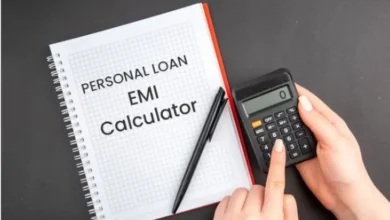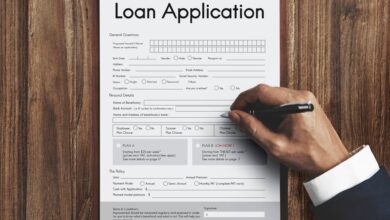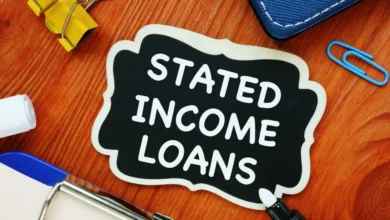Who Do You Contact if You’ve Already Accepted More Loan Money Than You Need?

When it comes to financing your education, personal needs, or even business ventures, loans can provide essential support. However, it’s common for borrowers—especially students—to accept more loan money than they actually need. This can happen due to miscalculations, overestimation of expenses, or simply wanting a financial safety net. Once you realize you’ve borrowed too much, the critical question arises: who do you contact if you’ve already accepted more loan money than you need? Understanding the right steps to take not only helps you reduce debt but also saves money on interest in the long run.
Understanding the Implications of Borrowing Too Much
Before diving into who you should contact, it’s important to understand why excess borrowing is problematic. Loans, whether federal, private, or personal, are not free money. They come with obligations, repayment terms, and interest rates that can accumulate over time. Borrowing more than necessary means you could spend years repaying money that you never needed in the first place. This can lead to higher monthly payments, added financial stress, and limitations on future borrowing power.
Who Do You Contact First? Your Loan Servicer
The primary person or organization to contact if you’ve already accepted more loan money than you need is your loan servicer. Loan servicers are the companies assigned by lenders (or the federal government, in the case of federal student loans) to manage your repayment. They handle billing, repayment plans, and questions related to your loan account.
If you accepted a federal student loan, your servicer is assigned by the U.S. Department of Education. If it’s a private loan, your lender likely contracts a servicer to manage accounts. In either case, your loan servicer is the first point of contact to discuss options for reducing or returning excess funds.
Contacting Your School’s Financial Aid Office (For Student Loans)
If you are a student and the loan in question is educational, your school’s financial aid office plays a key role. Schools often disburse federal student loans directly to cover tuition and fees. If you discover you accepted too much loan money, you should immediately reach out to your financial aid office. They can help you:
- Cancel or reduce future disbursements.
- Return unused loan funds if the money hasn’t been fully disbursed.
- Adjust your award letter to reflect a lower borrowing amount.
Since schools work closely with federal loan disbursements, they have direct authority to make changes before the funds hit your account or billing statement.
What If the Loan Has Already Been Disbursed?
If the funds have already been deposited into your bank account, you still have options. Most loan programs allow a “grace return period”—usually within 120 days of disbursement—for returning extra funds without penalty. During this time, you can send the money back to your servicer or school, and it will be applied directly to the principal balance.
To initiate this, you should:
- Contact your loan servicer immediately.
- Ask for instructions on returning funds.
- Make sure the return is marked as a loan cancellation rather than a regular payment, to avoid unnecessary interest charges.
Private Loans: Who to Contact?
If the loan is private, the process may be a little different. In this case, your private lender (the bank, credit union, or financial institution) is the main contact. Some private lenders have policies similar to federal loans, allowing borrowers to return funds within a certain window. Others may require you to simply make an early payment.
When contacting a private lender, ask:
- Can I return excess loan funds?
- Will the return be applied to the principal balance?
- Is there a deadline for returning funds without penalty?
Why Timing Matters
One of the most important factors in deciding who to contact and how to act is timing. The sooner you reach out, the easier it is to correct the situation. Waiting too long could mean:
- Missing the grace return period.
- Paying unnecessary interest.
- Losing eligibility for reduced disbursement adjustments.
For federal loans, acting within 120 days is ideal. For private loans, deadlines vary, but contacting your lender as soon as possible gives you the best chance at avoiding long-term financial consequences.
What Happens if You Do Nothing?
If you don’t contact anyone after accepting more loan money than you need, the consequences can follow you for years. Not only will you owe more, but the interest will compound, making the loan more expensive over time. Additionally, a higher loan balance can affect:
- Your credit score.
- Debt-to-income ratio (important for mortgages and future loans).
- Financial flexibility in emergencies.
Doing nothing should never be an option. Even small amounts of excess loan money add up when repaid over a decade or more.
Alternatives to Returning Funds
In some cases, borrowers choose not to return excess funds because they worry about losing access to emergency money. If that’s you, consider alternatives:
- Set the money aside in a savings account to cover true emergencies, then pay it back early.
- Explore adjusting future borrowing instead of current funds.
- Use grants, scholarships, or part-time work to reduce reliance on loans.
While keeping the funds may seem tempting, remember that loans are a long-term financial obligation—not “free cash.”
Key Contacts for Different Loan Types
Here’s a quick breakdown of who to contact if you’ve already accepted more loan money than you need, based on loan type:
- Federal Student Loans: Start with your school’s financial aid office, then follow up with your loan servicer.
- Private Student Loans: Contact your private lender directly.
- Personal or Business Loans: Reach out to your lender’s customer service department for repayment or refund options.
Each contact has authority in different parts of the loan process, so knowing where to start prevents confusion and wasted time.
Documentation and Record Keeping
When dealing with loan adjustments, documentation is crucial. Always keep a record of:
- Emails or letters sent to your financial aid office, servicer, or lender.
- Dates and times of phone calls.
- Instructions provided by the lender on returning funds.
- Confirmation receipts of returned money.
These records protect you in case of disputes and ensure that returned funds are applied correctly.
How to Avoid Borrowing Too Much in the Future
To prevent this situation from happening again, practice proactive borrowing strategies:
- Calculate your true cost of attendance or living expenses.
- Accept only what you need, not the full amount offered.
- Seek scholarships, grants, and work opportunities first.
- Review your loan award letter carefully before accepting.
By being cautious upfront, you save yourself the trouble of having to ask who do you contact if you’ve already accepted more loan money than you need? in the first place.
Final Thoughts
In summary, if you’ve taken out more loan money than necessary, the first step is to contact the appropriate authority—your loan servicer, financial aid office, or private lender—depending on the type of loan. Acting quickly can help you return excess funds, reduce your principal, and avoid paying unnecessary interest. Borrowing responsibly is not just about getting the money you need today; it’s also about protecting your financial health for years to come.



